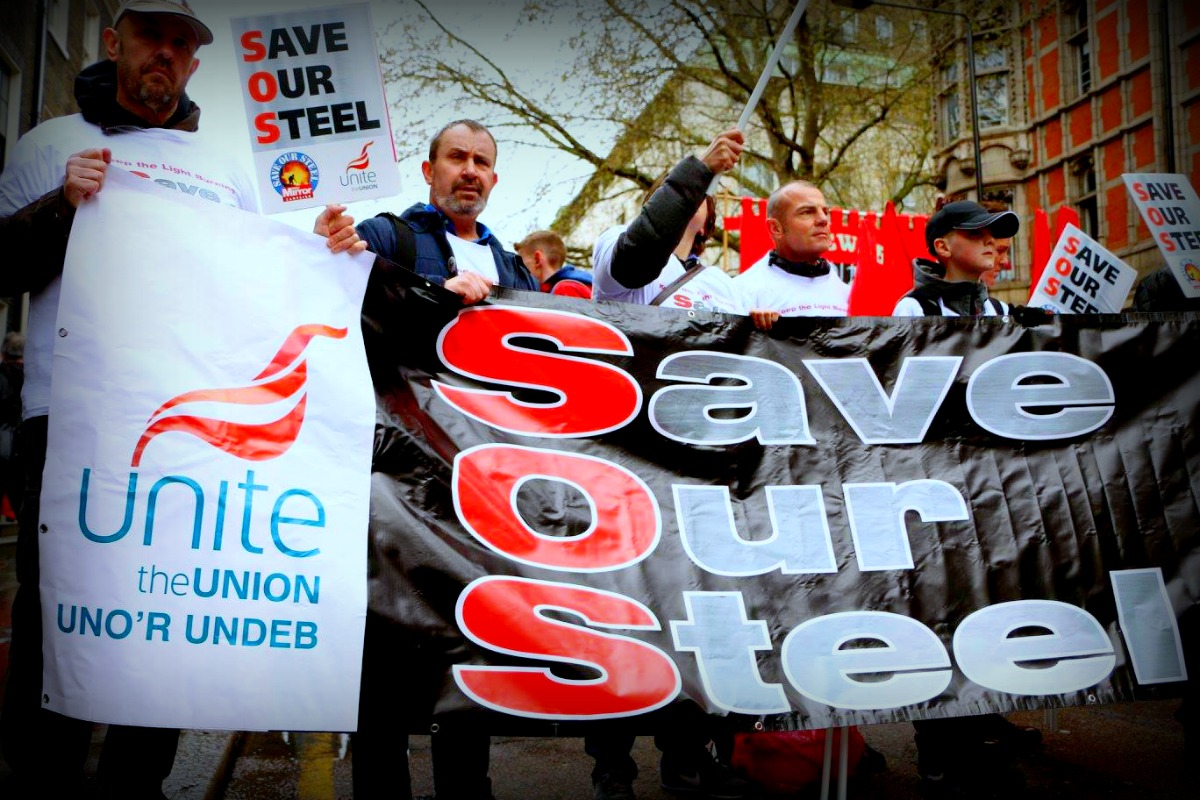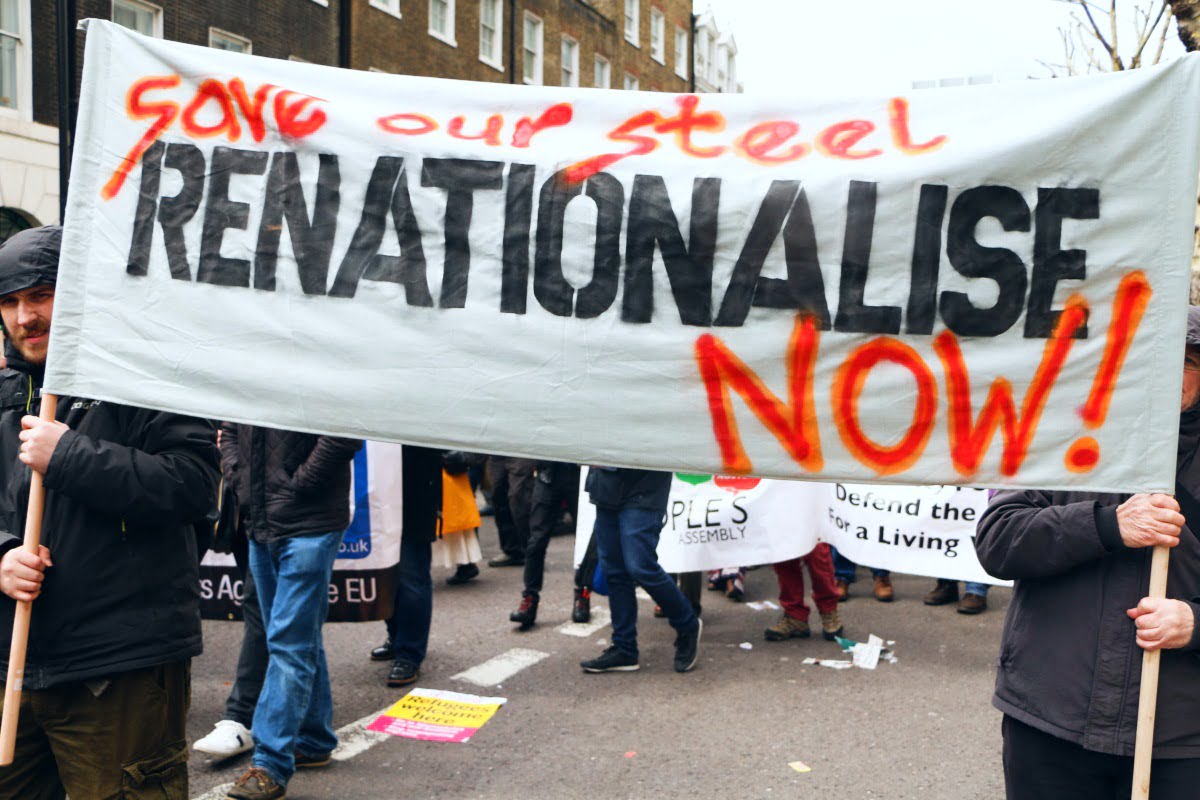In the last week, Tata Steel bosses have announced that 1000 jobs are set to go from their British operations. Steel workers and their families in Port Talbot will be hit hard. The labour movement must fight for nationalisation.
While financial gamblers in the City are looking forward to their end-of-year bonuses, steel workers and their families in Port Talbot, Wales, can expect a very grim Christmas indeed.
Bosses at Tata Steel have unceremoniously announced the sacking of nearly 1-in-8 of its workforce in Britain. 1000 jobs are to disappear across the country, with the lion’s share coming from the Port Talbot site, where half of Tata’s employees are based.
Sadly, this was to be expected. Global markets have been overflowing with cheap Chinese steel for years now, putting enormous pressure on competitors.
Even Japan, the second largest steel producer after China, hasn’t been exempt from this. Kobe Steel – renowned for the quality of its products, which are used by car makers and train manufacturers – has had to resort to degrading their steel. This has led to a scandal whereby the company has had to admit to releasing many tonnes of substandard material onto the market in recent years.
This is yet another expression of the capitalist system’s crisis of overproduction. Plants are mothballed, jobs are cut, and living standards slashed – not because of scarcity but because too much is being produced and markets are saturated.
This has forced steel industries across the world almost to a standstill. Union officials from Port Talbot aren’t wrong when they accuse Tata Steel bosses of overseeing a “managed decline”.
Capitalist anarchy
 At the receiving end of this anarchy of the market are the 1000 workers from Port Talbot. They and their families must now spend their Christmas in the shadow of uncertainty and despair.
At the receiving end of this anarchy of the market are the 1000 workers from Port Talbot. They and their families must now spend their Christmas in the shadow of uncertainty and despair.
And that’s just the beginning when it comes to the future facing these communities. Everyone knows what happened to the miners and other former industrial areas. One recent IPPR North report shows that the north of England is scarred by deindustrialisation, with life expectancy in some areas now lower than in Poland or Turkey.
As a part of Tata Steel’s newly announced ‘cost reduction plans’, 1,600 jobs are also going to be cut at its plants in the Netherlands. So much for the line that the EU defends workers’ rights.
We see, once again, that union organisation and militant struggle are our only lines of defense against the attacks of multinational profiteers.
Save our steel!
Steel is a key industry. If Labour is to implement its bold manifesto, steel must play a crucial role. Building 100,000 new council houses per year will require vast amounts of reinforced steel. If we’re to nationalise our railways, we will need not only to maintain them but to modernise the entire network too.
Protectionist tariffs and trade wars are not the solution. The problem is the anarchy of capitalism: a system where production is only for the bosses’ profits, not for society’s needs. At the end of the day, you cannot plan what you don’t control; and you cannot control what you don’t own.
To save our industries, we need a socialist Labour government that will nationalise them under workers’ control, as part of a socialist plan of production. This means not just steel but also energy, transport, the banks, and other major monopolies, in order to provide workers – in the spirit of the old Clause IV – with “the full fruits of their industry”






